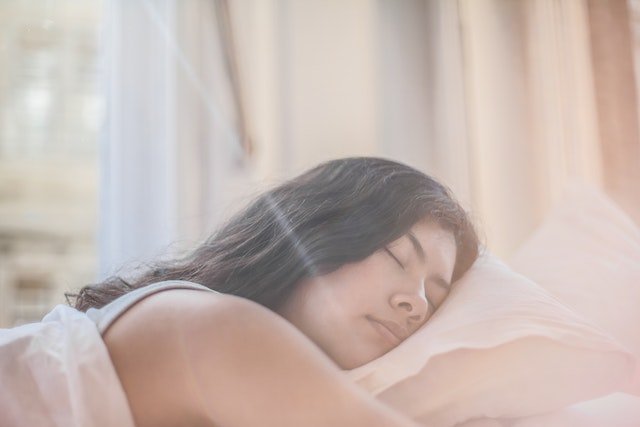Sleep Hygiene by Dr. Stephanie Karozos, MD
Do you struggle to fall asleep at night? Do you find yourself waking up in the middle of the night, unable to fall back to sleep? If so, you are not alone.
Insomnia consists of difficulty falling asleep at bedtime (sleep-onset insomnia) and waking up in the middle of the night (middle-of-the-night insomnia), and it can have many causes. The anxious mind can race, keeping us awake with our cycling thoughts or waking us up at the same time every night. Chronic health issues, depression, medications and supplements, hormonal changes, the events of the day, or big life shifts can also impair our ability to relax into sleep and to stay asleep. These factors are important and can be worked on with a trusted health professional. Oftentimes, however, sleep-onset and middle-of-the-night insomnia can be caused or worsened by poor sleep hygiene.
What is sleep hygiene?
Sleep hygiene consists of how we take care of our bodies and our surrounding environment to support sleep health. A few simple changes to improve our sleep hygiene can quickly and drastically improve our sleep quality, allowing us to wake up feeling refreshed and ready to enjoy the day and make the most of our lives.
The bedroom:
Much like personal hygiene requires keeping a clean home as well as properly caring for our bodies by showering and brushing our teeth, the environment in which we sleep affects our sleep quality. Keeping our bedrooms cool and dark is critically important to our sleep health. A cool bedroom (ideally between 60-67 degrees fahrenheit) helps us optimize REM cycles and improve the quality of our sleep. Darkness is also essential to falling asleep quickly and staying asleep. Light affects our circadian rhythms, keeping us awake longer than we’d like to be or stimulating wakefulness while we are asleep. Even if we have the lights off, our eyes can be exposed to a lot of unintentional light at night. Light creeps in through our windows and electronic devices. Wearing an eye mask or having black out curtains can help to reduce our light exposure at night. Unplugging or safely covering any electronic devices that emit light in the bedroom can also reduce unwanted stimulation. When you start actively blocking out light at night, you will almost certainly be surprised by how much light stimulation you were unintentionally exposed to before making these changes.
Screens & blue light:
Blue light stimulates our body and mind, telling them “it’s time to wake up!” Most lights contain blue light, and unfortunately, our phone and television screens are no exception. Reducing screen time in the evenings and completely eliminating it for at least 30 minutes before bed helps our bodies’ natural rhythms take over, stimulating sleepiness. Wearing special glasses that filter blue light in the evenings can also help to regulate our circadian rhythms, allowing sleep to come easier to us. Even using an amber-colored book light, if you read before bed, will help to reduce blue light. Our bedrooms should be a work-free, screen-free environment. If you struggle with sleep, one of the first things to consider is removing televisions, phones, and other screens from the bedroom. You will likely notice a near-instant improvement in your sleep!
Caring for your body:
Hydration is important for sleep quality. Aim to drink at least half of your body weight in ounces of water per day. Avoid drinking too many fluids right before bed to prevent bathroom trips in the middle of the night. Caffeine and alcohol can both cause dehydration and poor sleep. Avoiding both for several hours before bed or altogether can immediately improve sleep in some people. Often, we use alcohol to stimulate sleepiness, but it negatively impacts the quality of sleep we get. Instead, try the changes mentioned above to stimulate sleepiness. Eating earlier in the evening is generally better for sleep, however if you are hungry and it’s preventing you from sleeping, try a healthy snack with complex-carbohydrates, fat and protein to prevent blood sugar spikes and crashes while you are sleeping. Bathing or showering before bed can help to regulate your core body temperature, making it easier to sleep well.
Noise:
Many of the factors affecting sleep involve reducing noise. Whether it be from excessive light exposure, heat or cold, stimulation from alcohol/caffeine, or the lifestyle factors mentioned above, noise disrupts sleep. Sometimes, audible noises also affect our sleep. Partners snoring, pets barking or meowing, trucks passing by outside our window – all of these have the potential to disrupt our sleep. If it is safe for you, exploring the use of earplugs can be helpful to improve sleep quality. At the very least, introducing a fan or other source of white noise to cancel out other sounds can be helpful to promote sleep.
These are just a few easy changes that can help promote healthy sleep. Share these with your friends, family, and other loved ones who are struggling with sleep. The solution might be simpler than we think. Sleep well!

